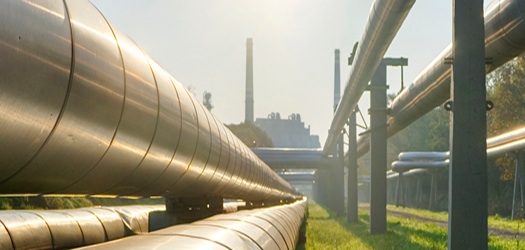

Two buildings in New York City collapsed this morning, killing two people and injuring 22, according to ongoing reports. Police are still investigating the cause for the collapses, Reuters reports, but there’s some evidence pointing to a natural gas leak. Witnesses reported hearing loud bangs and explosions, plus Con Edison says it received a complaint about a gas odor in the area about 20 minutes before the disaster. The company dispatched a crew, but the buildings had crashed to the ground before it arrived.
A growing collection of evidence suggests that natural gas leaks and explosions are a problem throughout the U.S. It’s a problem that gas companies know about, but aren’t motivated to fix, according to an award-winning feature published in 2013 in the online magazine Matter. Left unchecked, the leaks occasionally threaten people and property. They may also contribute to global warming as much as coal, undermining natural gas’ reputation as a greener choice and, well, threatening people and property, in the long run.
Matter reports:
The feature follows Bob Ackley, a longtime gas-company contractor who drives around cities, finding gas leaks. Over the course of his career, he noticed that companies often wouldn’t fix leaks even when he reported them. Frustrated and worried, the community-college dropout signed on to work with professors and grad students to map leaks in cities.
Most recently, the team published a study reporting more than 5,800 leaks in Washington, D.C. The team found 12 manholes—where leaked gas tends to accumulate—had high enough concentrations of methane to cause an explosion. Four months after they gave their results to the local gas company, nine manholes remained dangerously full of methane, the main—and most dangerous—chemical in natural gas.
Older East Coast cities that have used natural gas for generations likely have similar numbers of leaks, Duke University environmental scientist Rob Jackson, who worked on the mapping with Ackley, told Matter. So may older cities outside of the U.S. The culprits are aging pipes, including cast-iron pipes first set down in the 19th century.
It’s true that many of those leaks don’t pose an immediate danger to people. I’m guessing that’s why those thousands of leaks result in fewer than 100 injuries, on average, in the U.S. every year. Ackley himself noticed that gas companies were quick to fix the most dangerous leaks.
Yet even small leaks contribute to methane in the atmosphere, which in turn is a potent greenhouse gas. Methane traps much more heat than carbon dioxide. The silver lining is that methane hangs around the atmosphere for much less time, about 10 years, compared to carbon dioxide, which has a lifetime of up to 200 years. Yet if there’s enough methane escaping from leaky pipes, it could be just as bad for global warming as coal. It all depends on exactly how much is leaking and goes unfixed.
